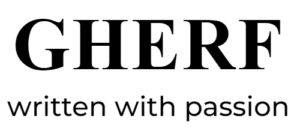In today’s digital age, the online environment has become an integral part of our daily lives. However, few of us pause to reflect on how this environment influences our well-being and mental health. From social media networks to online gaming and media content, the internet presents both challenges and opportunities for our mental health. In this article, we will explore various aspects of the online environment and how they can affect our psyche.
Connection or Isolation? The Impact of Social Media on Mental Health
Social media platforms have revolutionized the way we connect and interact with others, but their impact on mental health is complex and multifaceted. On one hand, these platforms offer unparalleled opportunities for social connection, allowing us to stay in touch with friends and family across the globe, engage with like-minded communities, and discover new perspectives. However, beneath the surface lies a darker reality, where the quest for likes, shares, and followers can fuel feelings of inadequacy and loneliness.
In our digital age, the pressure to curate a perfect online persona has never been more intense. From meticulously edited photos to carefully crafted captions, social media encourages us to present an idealized version of our lives—a highlight reel that often bears little resemblance to reality. In this curated world of endless vacation snapshots, gourmet meals, and picture-perfect moments, it’s easy to fall into the trap of comparison, measuring our own lives against the seemingly flawless façades of others.
Yet, behind the façade lies a stark truth: no one’s life is as perfect as it appears online. The relentless pursuit of likes and validation can leave us feeling hollow and disconnected, as we struggle to live up to the impossible standards set by our peers and influencers. In our quest for validation, we may find ourselves sacrificing authentic connection for shallow likes and fleeting moments of approval.
Moreover, social media’s 24/7 accessibility can blur the boundaries between our online and offline lives, leaving us feeling constantly tethered to our screens. The relentless stream of notifications, likes, and comments can disrupt our sleep, invade our thoughts, and erode our sense of presence in the real world. As we become increasingly dependent on virtual validation, we may find ourselves retreating further into our digital bubbles, isolating ourselves from the rich tapestry of human connection that exists beyond the confines of our screens.
In this digital age, it’s more important than ever to strike a balance between our online and offline lives. While social media can offer valuable opportunities for connection and community, it’s essential to approach these platforms with mindfulness and self-awareness. By cultivating a healthy relationship with social media— one grounded in authenticity, self-compassion, and genuine connection— we can mitigate its negative impact on our mental health and rediscover the joy of living fully present in the moment.
Online Gaming and Addiction: When Fun Becomes Problematic
Online gaming has emerged as one of the most popular forms of entertainment in the digital age, offering immersive experiences and endless opportunities for exploration and achievement. However, beneath the surface lies a hidden danger: the potential for gaming to transition from a harmless pastime to a destructive addiction, wreaking havoc on mental health and overall quality of life.
At first glance, online gaming may seem like a harmless form of recreation—a way to unwind after a long day or connect with friends in virtual worlds. However, for some individuals, what begins as innocent fun can quickly spiral out of control, leading to compulsive gaming behavior and a loss of perspective on reality.
The immersive nature of online games is a double-edged sword, blurring the lines between the virtual and the real. In these virtual worlds, players can escape the stresses and responsibilities of everyday life, assuming new identities and embarking on epic quests. The thrill of exploration, the adrenaline rush of competition, and the satisfaction of leveling up can be intoxicating, drawing players deeper into the virtual rabbit hole with each passing hour.
Yet, as the line between reality and fantasy begins to blur, the consequences of excessive gaming become increasingly apparent. Compulsive gamers may neglect their physical health, foregoing sleep, exercise, and proper nutrition in favor of marathon gaming sessions. They may withdraw from social interactions, retreating into the safety of their virtual worlds and alienating themselves from friends and family.
Moreover, the addictive nature of online gaming can give rise to a host of mental health issues, including anxiety, depression, and low self-esteem. As players become increasingly dependent on the dopamine rush of gaming, they may find themselves trapped in a vicious cycle of gaming, withdrawal, and cravings, unable to break free from the grip of addiction.
In extreme cases, gaming addiction can have devastating consequences, leading to academic failure, job loss, and even breakdowns in personal relationships. The toll on mental health can be profound, as individuals struggle to cope with the psychological fallout of their addiction.
However, there is hope. With proper intervention and support, individuals struggling with gaming addiction can find their way back to a healthier, more balanced life. Through therapy, support groups, and lifestyle changes, they can learn to regain control over their gaming habits and rediscover the joys of real-world connection and fulfillment.
FOMO and Social Media Anxiety: The Illusion of Perfection and Its Impact
In the age of social media, where every moment is meticulously curated and shared with the world, the fear of missing out (FOMO) has become an all too familiar phenomenon. FOMO manifests as a pervasive sense of anxiety and unease, fueled by the fear that others are experiencing more exciting, fulfilling lives than our own. As we scroll through our social media feeds, we’re bombarded with snapshots of seemingly perfect moments—exotic vacations, glamorous parties, and picture-perfect relationships—that leave us feeling inadequate and dissatisfied with our own lives.
The rise of social media has fundamentally altered the way we perceive ourselves and others, creating an endless cycle of comparison and self-doubt. With every post, tweet, and status update, we’re invited to glimpse into the carefully curated lives of our peers, presented through a rose-tinted lens of filters and editing tools. In this virtual world of likes and followers, it’s all too easy to fall into the trap of comparing our behind-the-scenes reality to the highlight reels of others.
Yet, beneath the surface lies a harsh truth: social media is not a reflection of reality, but rather a carefully constructed façade designed to project an idealized version of our lives. Behind every perfectly posed photo lies a story of struggle and imperfection—a story that rarely makes its way onto our feeds. By comparing ourselves to these idealized images, we set ourselves up for inevitable disappointment and self-loathing, as we strive to measure up to impossible standards of beauty, success, and happiness.
Moreover, the constant barrage of FOMO-inducing content can take a toll on our mental health, contributing to feelings of anxiety, depression, and low self-esteem. As we obsessively refresh our feeds in search of validation and connection, we become increasingly disconnected from the present moment, unable to fully engage with the world around us. The fear of missing out becomes a self-fulfilling prophecy, as we sacrifice genuine experiences for the sake of maintaining our online personas.
In this digital age, it’s more important than ever to cultivate a healthy relationship with social media—one grounded in self-awareness, authenticity, and self-compassion. By recognizing the illusion of perfection perpetuated by social media and embracing our own unique journey, we can free ourselves from the shackles of comparison and embrace the beauty of imperfection. Rather than seeking validation from external sources, we can find fulfillment in the richness of our own lived experiences, cherishing the moments that truly matter and letting go of the rest.
Effects on Self-Perception: Idealization and Online Depression
In today’s digitally saturated world, the images and messages we encounter online play a significant role in shaping our perceptions of ourselves and others. Unfortunately, the online environment is often rife with unrealistic ideals and image manipulation, which can have profound consequences for our mental health and well-being.
The pressure to conform to societal standards of beauty, success, and happiness is omnipresent on social media platforms, where carefully curated images and narratives dominate our feeds. From flawless selfies to enviable lifestyles, these idealized portrayals create a distorted reality that leaves many feeling inadequate and insecure about their own lives.
For vulnerable populations, such as adolescents, the impact of this idealization can be particularly detrimental. Adolescence is a time of immense growth and self-discovery, marked by heightened sensitivity to social cues and peer influences. In this vulnerable state, exposure to unrealistic ideals can fuel feelings of inadequacy and self-doubt, leading to a negative self-perception and a heightened risk of depression.
Furthermore, the prevalence of image manipulation and editing tools on social media further distorts our perceptions of reality, blurring the line between authenticity and artifice. As we strive to emulate the flawless images we see online, we may find ourselves falling short of these unattainable standards, fueling a cycle of comparison and self-criticism.
The consequences of this idealization are far-reaching, extending beyond mere dissatisfaction to encompass more serious mental health issues, such as depression and anxiety. The constant pressure to measure up to unrealistic ideals can erode our self-esteem and sense of self-worth, leaving us feeling hopeless and disillusioned.
Solutions and Strategies for a Healthy Balance
In the face of these challenges, it’s essential to adopt proactive strategies for managing our online interactions and promoting mental well-being in the digital age. Here are some practical tips and strategies for cultivating a healthy balance:
Digital Detox: Take regular breaks from social media and other online platforms to disconnect and recharge. Set boundaries around your online usage and prioritize activities that nourish your mind, body, and spirit.
Practice Mindfulness: Cultivate awareness and presence in the present moment, allowing yourself to fully engage with the world around you. Practice mindfulness techniques, such as meditation and deep breathing, to quiet the noise of the digital world and reconnect with yourself.
Seek Support: Reach out to friends, family, or mental health professionals for support and guidance when needed. Don’t hesitate to seek help if you’re struggling with feelings of depression, anxiety, or low self-esteem.
Cultivate Healthy Relationships: Surround yourself with positive influences and supportive relationships that uplift and inspire you. Foster meaningful connections both online and offline, prioritizing quality over quantity in your social interactions.
Practice Self-Compassion: Be kind and compassionate toward yourself, recognizing that you are worthy and deserving of love and acceptance just as you are. Challenge negative self-talk and perfectionistic tendencies, replacing them with messages of self-love and acceptance.
In conclusion, the online environment exerts a powerful influence on our mental health and well-being, shaping our perceptions of ourselves and others in profound ways. By understanding the potential negative effects of idealization and image manipulation, we can take proactive steps to protect our mental health and cultivate a healthier relationship with technology.
This comprehensive article has aimed to shed light on the complex interplay between the online environment and mental health, offering insights and practical solutions for navigating this digital landscape. By raising awareness and promoting informed decision-making, we can empower individuals to prioritize their mental well-being and thrive in an increasingly digitized society.

